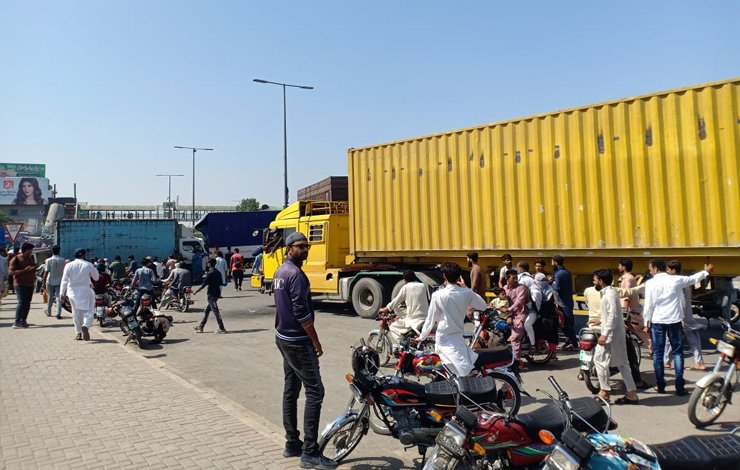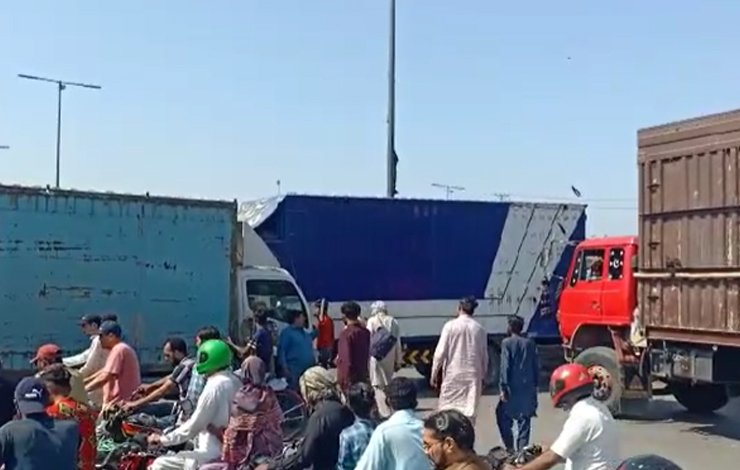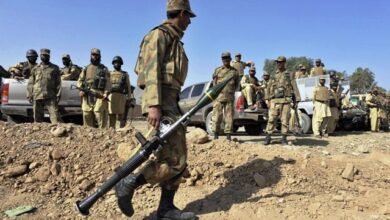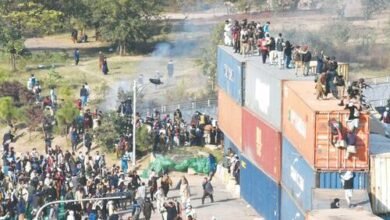PTI long march: Section 144 imposed in Sindh, Punjab, Islamabad
The federal government has completed preparations to deal with Pakistan Tehreek-e-Insaf’s long march and turned Islamabad into a fortress.
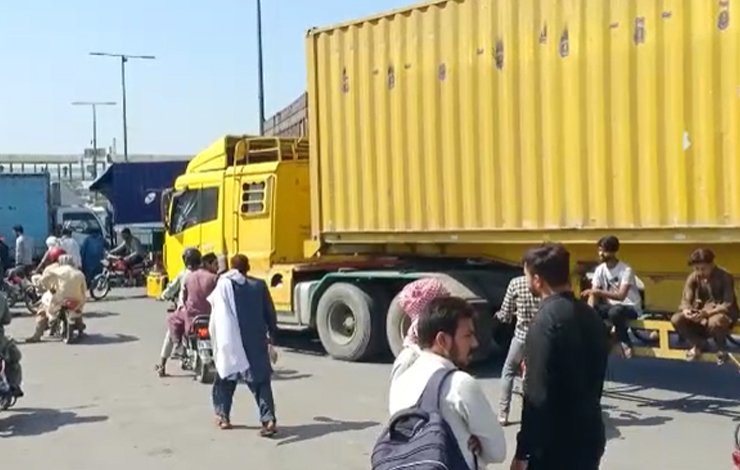
ISLAMABAD: Section 144 has been imposed in Sindh, Punjab and the federal capital Islamabad by the higher authorities ahead of the Pakistan Tehreek-e-Insaf (PTI) long march to be held on May 25.
Moreover, Interior Minister Rana Sanaullah summoned military troops to Islamabad to secure the Red Zone, according to the latest development.
The federal government has completed preparations to deal with Pakistan Tehreek-e-Insaf’s long march and turned Islamabad into a fortress besides launching crackdowns on PTI leaders.
22,000 personnel will be deployed, whereas, the Red Zone has been sealed with containers.
The Islamabad High Court (IHC) judge, while hearing the petition of PTI, remarked that the orders of the Supreme Court (SC) regarding sit-ins and power shows are very clear and the court could not issue a general order.
The federal government has formulated a strategy to deal with the PTI marchers under which 22,000 personnel will be deployed. 2,000 Anti-Riot force and 2,000 Sindh police personnel have also been summoned to Islamabad.
Thousands of tear gas shells are also being provided to police personnel deployed near the venue. During the long march, 500 female officers will also perform security duties.
All routes to Islamabad’s Red Zone with important buildings including the Supreme Court (SC), Parliament House, Election Commission of Pakistan (ECP), Presidency, Prime Minister’s Office, Foreign Office (FO) and embassies in the radius are closed with containers.
The Islamabad administration, after consulting the police officials, forwarded the suggestions to the Interior Ministry.
Moreover, the Islamabad High Court (IHC) heard the plea of PTI against possible arrests and closure of routes. The IHC judge remarked that the court could not issue such an order merely out of fear. Important and sensitive buildings, including embassies, are located there.
Pakistan Tehreek-e-Insaf (PTI) lawyer argued that the party leaders and workers were being arrested and harassed. He said that the workers could not be stopped from gathering.
The high court’s judge remarked that there were clear orders in the Faizabad sit-in case regarding protests, rallies and public meetings and the decision of the apex court should be implemented.
